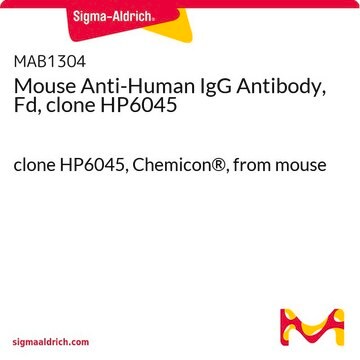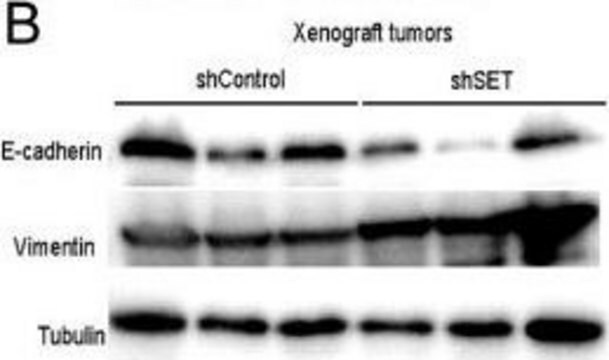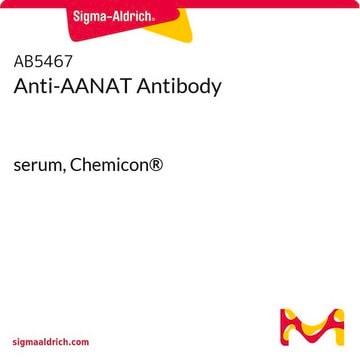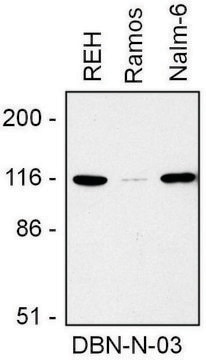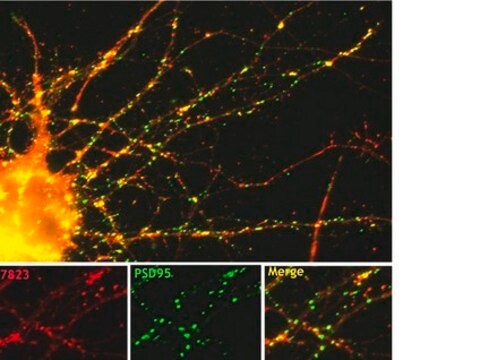MABN833
Anti-phospho Drebrin (Ser142), clone 3C14 Antibody
clone 3C14, from mouse
Synonym(s):
Drebrin, Developmentally-regulated brain protein
About This Item
WB
inhibition assay
inhibition assay: suitable (peptide)
western blot: suitable
Recommended Products
biological source
mouse
Quality Level
antibody form
purified immunoglobulin
antibody product type
primary antibodies
clone
3C14, monoclonal
species reactivity
human, mouse, rat
technique(s)
immunocytochemistry: suitable
inhibition assay: suitable (peptide)
western blot: suitable
isotype
IgG3κ
NCBI accession no.
UniProt accession no.
shipped in
wet ice
target post-translational modification
phosphorylation (pSer142)
Gene Information
human ... DBN1(1627)
General description
Immunogen
Application
Neuroscience
Developmental Signaling
Immunocytochemistry Analysis: 20 µg/mL from a representative lot detected phospho Drebrin (Ser142) in HeLa and NIH/3T3 cells.
Peptide Inhibition Analysis: 0.5 µg/mL from a representative lot detected phospho Drebrin (Ser142) in 10 µg of rat neonatal brain tissue lysate.
Immunocytochemistry Analysis: A representative lot detected phospho Drebrin (Ser142) in rat embryonic cortical culture (Prof. Phillip R. Gordon-Weeks, King′s College London).
Quality
Western Blotting Analysis: 0.5 µg/mL of this antibody detected phospho Drebrin (Ser142) in 10 µg of SH-SY5Y cell lysate.
Target description
Physical form
Storage and Stability
Other Notes
Disclaimer
Not finding the right product?
Try our Product Selector Tool.
Storage Class Code
12 - Non Combustible Liquids
WGK
WGK 1
Flash Point(F)
Not applicable
Flash Point(C)
Not applicable
Certificates of Analysis (COA)
Search for Certificates of Analysis (COA) by entering the products Lot/Batch Number. Lot and Batch Numbers can be found on a product’s label following the words ‘Lot’ or ‘Batch’.
Already Own This Product?
Find documentation for the products that you have recently purchased in the Document Library.
Our team of scientists has experience in all areas of research including Life Science, Material Science, Chemical Synthesis, Chromatography, Analytical and many others.
Contact Technical Service

